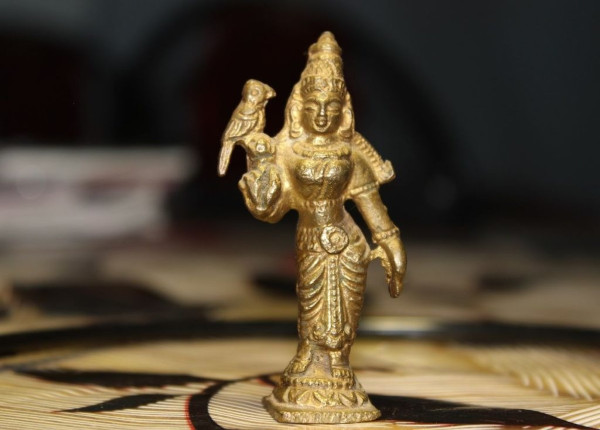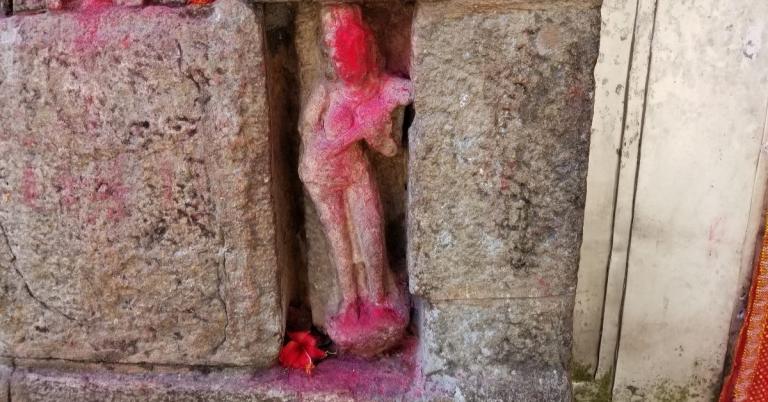At Pantheacon a few years ago I ran a discussion on diversity in Thelema. We talked about race, gender, cultural appropriation, secrecy. I thought we had covered most of the bases until a guy in the back stood up and let me know I had missed something. “Brandy, I have some feedback for you,” he said. “I’m J. Gordon Melton.” I was simultaneously thrilled and alarmed – thrilled because I knew his work from the 1970s when he was writing sympathetic definitions of magical communities for religious encyclopedias, and alarmed to have attracted his attention!
This was his feedback: “When you say Thelema, you mean Ordo Templi Orientis.” I was somewhat startled by his comment. I rather did think of the O.T.O. as synonymous with Thelema. “I’ll think about that,” I promised.
There are good reasons I hadn’t sought out other groups. Thelemites hold strong opinions, some of which can be very sexist. One online discussion seriously considered whether women have souls! My fellow order members may disagree with each other but there is an expectation of civil and respectful discourse. Being an outspoken woman makes me a target and I have been defended by brothers and sisters who stood up for my right to speak. Also, the O.T.O. is one of the biggest Thelemic organizations with a very public presence, and internet forums are filled with former members and others who offer bitter criticisms to any member who sticks our head up.
So the Thelemic world outside the O.T.O. can look dangerous for a woman Thelemite. However, I am an activist, challenging sexism and racism in myself and in the world. I know from my personal and professional experience that a group is more effective when it includes different kinds of people with multiple perspectives. That requires the ability to listen to people who see the world differently and to sit with the discomfort of unfamiliarity. So I dared myself to step out of my comfort zone and get to know something about how people practice Thelema outside the walls of the order.
The Irish Order of Thelema actually found me. They asked me to write a piece for their journal Fortified Island, Issue Seven, Doorways of Perception, so I wrote “Liber Astarte as Theurgic Ritual”. The Ord Thoil Eireannach grounds their practice of Thelema in the physical island of Ireland and in Celtic cosmology. I am fascinated to see the law of freedom rooting in a particular place and integrating with historical magics.
Dr. David Shoemaker is the Chancellor and Prolocutor of the Temple of the Silver Star. He is also an O.T.O. member but his leadership of the TOTSS gives him an additional perspective. I had a chance to spend quite a bit of time with him when both of us presented at the pan-Thelemic festival Babalon Rising. He kindly answered my questions about how a Thelemic organization descended from the Golden Dawn functions. I also love talking to people who knew Soror Meral, Phyllis Seckler. Along with Grady McMurtry she revived the O.T.O. when it was on its thinnest life support, a reminder that the order has not only supportive fathers but nurturing mothers.
At the same festival I got to spend time with Rev. Bill Duvendack, a spiritualist minister and astrologer. He teaches classes in astrology, Tarot, and general magical subjects. He also teaches about Thelema, but he is decidedly independent – he doesn’t belong to any Thelemic organization. He exemplifies the self-directed learner and teacher. He is knowledgeable, compassionate, and fiercely defends the law of freedom, and I cherish his friendship.
Denny Sargent is one of the founders and guiding forces of Horus Maat Lodge and has become a dear friend. He has been a Thelemite for longer than almost anyone else I know. He has stories – about watching Grady McMurtry perform Mass at Magickal Child Bookstore, about the thrills and horrors of receiving letters from Kenneth Grant, about doing powerful rituals with Nema. Denny hangs out with O.T.O. friends but speaks a different dialect. It isn’t just that he pronounces words differently, it’s that he doesn’t let anyone else tell him what Thelema means. He reads the texts, does the practices, meditates, and comes to his own conclusions. Whenever I fall into group-think he challenges me to embrace a wider understanding.
Every so often someone stakes Thelema as their own private ground – they have the real truth! – usually accompanied by criticism of other groups as not really Thelemic. That always seems to me like a surreal comprehension test of “do what thou wilt shall be the whole of the law.” You would think that a spiritual philosophy which specifically centers the sovreignity of the individual would be impervious to the human tendency to try to control other people, but it turns out that Thelemites are as susceptible to power-hunger as any other body politic. We even have lineage wars.
Personally I don’t grant to any individual or group the right to define Thelema. In addition to the fact that my O.T.O. initiations have taught me to trust myself and mistrust self-appointed guardians of the truth, I have learned from my friends in the wider community that there is more than one way to understand Thelema, and it is entirely possible to live a Thelemic life without authorization from any external agent.
Since I was challenged by J. Gordon Melton to recognize my own prejuidices I try to make it clear that my lived understanding is grounded in the O.T.O. but this is not the only path to freedom. Having friends with different perspectives has given me a more profound understanding of the many ways Thelema is unfolding in the world. The law is for all, every man and every woman is a star, and we illuminate each other in our cosmic dance. Diversity is not a threat; it is a gift.



